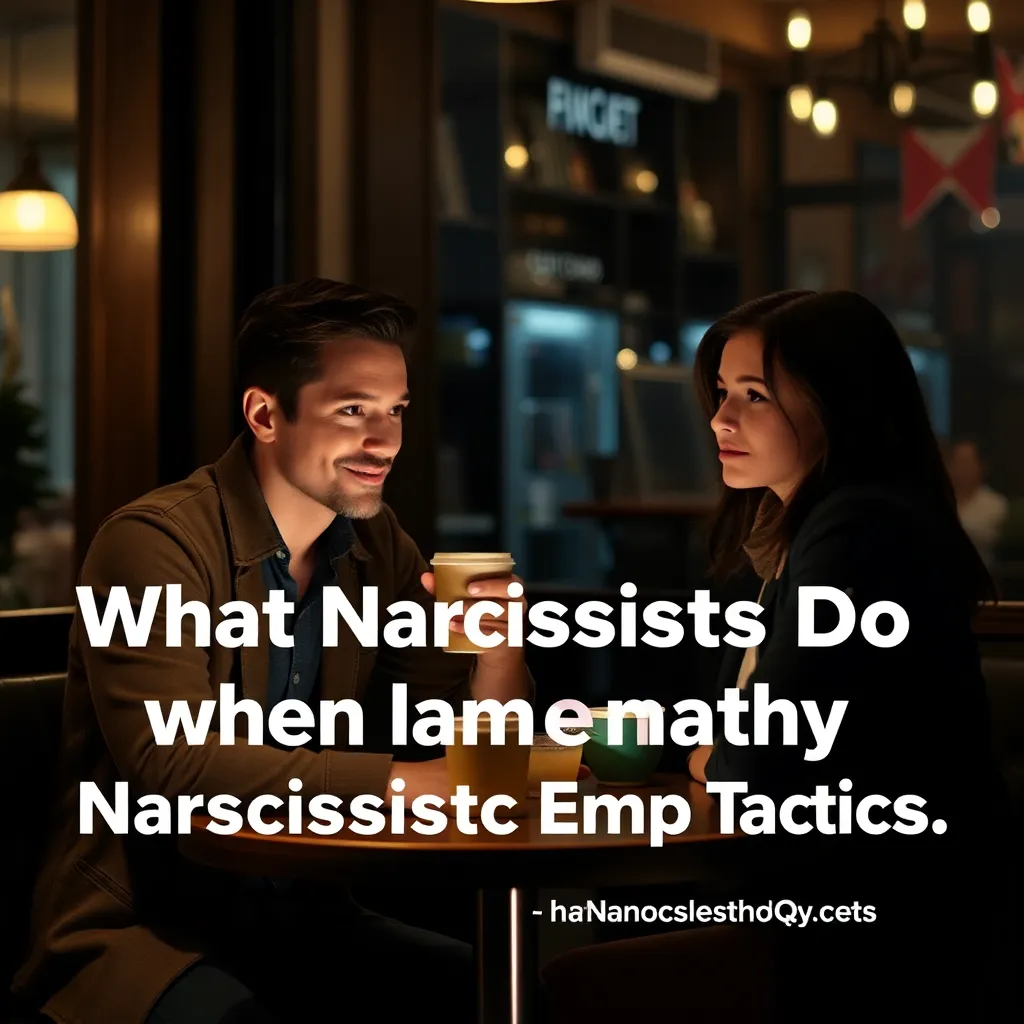Navigating relationships can be challenging, especially when you’re dealing with someone who seems to lack genuine empathy. It’s understandable to feel confused or even manipulated when a person displays what appears to be care and compassion, only for it to feel insincere or self-serving. Recognizing these behaviors is crucial, as it can help protect your emotional well-being and maintain healthy boundaries.
In this article, we’ll explore the complex world of narcissistic behavior, particularly focusing on how narcissists often employ fake empathy to achieve their own ends. You’ll gain insights into the subtle signs of these manipulative tactics, empowering you to identify and address them in your interactions. Understanding these dynamics can be the first step towards reclaiming your emotional strength and fostering healthier connections.
As you read on, you’ll discover practical strategies to navigate these challenging situations with confidence and clarity. Our aim is to provide you with the tools needed to discern genuine empathy from the counterfeit, ensuring you’re better equipped to maintain your emotional health. Together, we’ll unravel the intricacies of fake empathy, helping you to build more authentic and supportive relationships.
1. Recognizing Narcissistic Empathy Tactics

Recognizing **narcissistic empathy tactics** can be challenging, especially when they’re masked under layers of charm and charisma. Narcissists often use **empathy as a tool** to manipulate and control, making it crucial to look beyond the surface.
One common tactic is the **empathy facade**, where the narcissist will mirror emotions to create a false sense of connection. For instance, they might express exaggerated sympathy in public settings to appear caring and compassionate.
Another tactic involves **conditional empathy**—the narcissist shows empathy only when it benefits them or helps them maintain control. In a relationship, this might look like offering support when it aligns with their goals but withdrawing it when their needs aren’t met.
Experts suggest observing if the empathy feels **genuine or strategic**. Genuine empathy is consistent and selfless, while strategic empathy is sporadic and often followed by demands or expectations.
Being aware of these tactics can help you protect your **emotional well-being**. By recognizing the signs of fake empathy, you empower yourself to make informed decisions about your relationships.
2. How Fake Empathy Manifests

Narcissists often engage in what might appear as genuine empathy, but upon closer inspection, this is merely a facade. They mimic emotional responses to gain trust or manipulate situations to their advantage, leaving the other person feeling confused and vulnerable.
In relationships, a narcissist might ask deeply personal questions, seemingly showing interest and care. However, this is typically a ploy to gather information that can later be used to control or undermine their partner.
Imagine a scenario where one partner shares a difficult experience, and the narcissist responds with exaggerated concern. This display is often inconsistent, as the same empathy vanishes when it’s inconvenient for them to maintain the act.
Experts suggest that true empathy involves consistent emotional support, while fake empathy tends to be sporadic and self-serving. By recognizing these patterns, you can protect yourself from emotional manipulation and foster healthier relationship dynamics.
3. The Impact on Emotional Bonds

When narcissists use fake empathy, it creates a shallow emotional connection that can leave partners feeling confused and unfulfilled. This lack of genuine connection can slowly erode the trust and intimacy that are crucial for a healthy relationship.
In a real-world scenario, imagine a partner who appears to listen but never truly understands your feelings. Over time, this can lead to a sense of isolation, as the emotional support you seek seems to be an illusion, making it harder to rely on them during challenging times.
Experts note that this superficial empathy can cause emotional bonds to become fragile and unstable. As a result, partners might find themselves walking on eggshells, unsure of when the narcissist’s facade might crack under pressure, leading to unpredictable reactions.
To prevent the negative impact of fake empathy, one should focus on fostering genuine emotional connections. By prioritizing open and honest communication, partners can work together to rebuild trust and nurture a more supportive relationship.
4. Strategies to Identify Deception

Recognizing when someone is displaying fake empathy starts with being attuned to their **body language**. If their words of concern are not matched by genuine eye contact or open gestures, it could be a sign of **deception**. In relationships, noticing these inconsistencies can help you understand the true nature of the other person’s intentions. **Trusting your instincts** is key when you feel something is amiss.
Another method to spot fake empathy is to look for **over-the-top responses** that seem rehearsed. For instance, if your partner reacts to your bad day with exaggerated sympathy without offering real solutions or support, it might indicate a lack of genuine concern. Real empathy focuses on **authentic connection** and understanding, not just saying the right words. **Listening actively** and observing their actions over time can reveal more than just words.
In some cases, narcissists may use fake empathy to **manipulate** or **control the narrative**. They might pretend to understand your feelings to gain your trust, only to use that trust against you later. Understanding this tactic can protect your emotional well-being, allowing you to set **healthy boundaries**. By remaining aware of their patterns, you can make informed decisions about your relationship.
Ultimately, recognizing fake empathy involves a combination of **awareness** and **communication**. By paying attention to consistency between words and actions, you can discern between genuine and false empathy. This awareness can strengthen your emotional bonds by ensuring authenticity in your relationships. **Empower yourself** with the knowledge to foster more meaningful connections.
5. Setting Boundaries with Narcissists

When dealing with narcissists, it’s essential to know how to set and maintain healthy boundaries. Many people find themselves in situations where their personal limits are consistently pushed, leading to emotional exhaustion.
One effective strategy is to communicate your boundaries clearly and assertively. Imagine telling a narcissistic partner, “I need time alone after work to unwind,” and holding firm despite their attempts to intrude on your personal space.
It’s crucial to remain consistent and firm, even when faced with manipulative tactics. A narcissist may use guilt or charm to bypass your boundaries, but maintaining consistency reinforces your commitment to self-care.
Experts often suggest practicing self-reflection to understand your boundaries better. By identifying what makes you uncomfortable, you can better articulate your needs and protect your emotional well-being.
Ultimately, setting boundaries with a narcissist is about valuing yourself and your needs. By prioritizing your emotional health, you create a more balanced and respectful dynamic in the relationship.
Conclusion: Creating Beautiful Outdoor Spaces
In navigating relationships with narcissists, understanding their tactics is crucial. This article explored five key concepts: recognizing the facade of empathy that narcissists often use to manipulate; the importance of setting clear boundaries to protect yourself; the role of self-awareness in identifying manipulative behavior; strategies for effective communication to maintain your emotional health; and the necessity of seeking support from trusted friends or professionals. Armed with this knowledge, your immediate next step is to practice setting one clear boundary in a relationship where you suspect narcissistic behavior.
As you embark on this journey towards healthier relationships, remember that being informed and proactive is empowering. Bookmark this article as a valuable resource, providing guidance whenever you need to revisit these insights. By taking these steps, you’re not only safeguarding your emotional well-being but also paving the way for more genuine and fulfilling connections. Trust that with each mindful action, you’re closer to achieving the relationship success you deserve. Save this article now, and embrace the positive changes that await in your interpersonal world.
